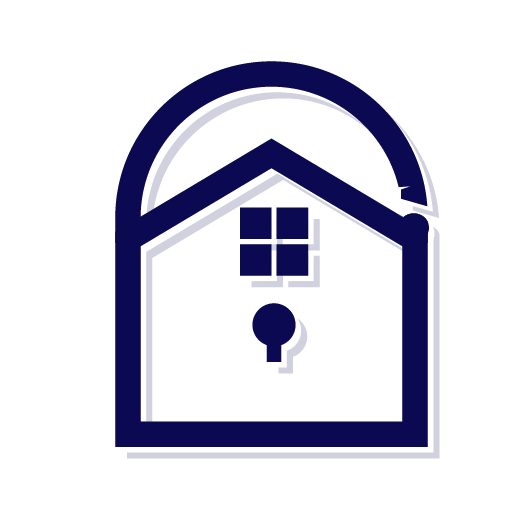Internet is an incredible tool for helping teens study, develop critical thinking abilities, and connect with other groups. It is also frightening for parents who are understandably concerned that their children may become victims of fraud, identity theft, or cyberbullying. Due to the portability of several devices, parents have fewer options to supervise their children’s Internet use.

According to research by the American publication PCMag, 76% of parents are concerned about their children’s internet safety and have considerable worries about the dangers they are exposed to.
“Consider putting your teenager into the Internet in the same manner you consider sending them into the world. “Varying age groups need individual levels of supervision; even within a particular age range, different children have distinct preferences and requirements,” explains security expert Brian Barrett.
Use these actionable tips to maximize the advantages of being online while minimizing the risk of falling victim to cybercriminals and bullies and keeping your Tweens & Teens Safe Online:
1. Set usage limits and time restrictions for your children’s Internet use.
The Internet may be a fascinating world for children, but most parents are worried about the amount of time their children spend online.
If you see that your teenager is becoming addicted to staying up all night to use the Internet, it may be time to implement use restrictions and time limitations.
Ensure they are aware of how much time they can spend on their computer or laptop. Additionally, parents should define what their teenagers may and cannot do online.
2. Teach your children about cybersecurity and Internet risks
You want your children to spend time on the Internet and benefit from the educational possibilities, but you also want them to be protected. To do this, you must explain online risks and how to spot them in a manner appropriate for children using simple language.
Education plays a crucial part in the learning process when it comes to cybersecurity. Parents must speak to their children about safe Internet surfing, harmful websites they may visit, cyberbullying, and other things that help them better understand what’s going on.
The more freely you discuss online risks with your teens about their Internet use, the simpler it will be for them to comprehend what they see or hear online.
3. Discuss with your Teens
Maintaining open lines of communication with your teen child is essential to ensuring their safety, both offline and online. It is never too early (or too late) to start talking to your kid about the need to be safe when using the Internet, regardless of whether they are in their teenage years or have just turned 16.
Your teens should be aware of the dangers you are worried about on the Internet, and you should talk to them about how to avoid those dangers.
You may make it easier for your teen to come to you in the event that they experience anything weird or unpleasant by initiating a conversation with them about internet safety.
4. Recognize and anticipate Scams
Connecting with people is simple in the modern age of email, chat, and social media. Unfortunately, it is also simple for fraudsters to use these channels to victimize individuals.
Parents and children of all ages must be aware of the most prevalent cons. For example, free ringtones may involve the download of an executable file. This dangerous software, often known as malware, infects devices with viruses to steal data or potentially destroy the whole system.
Since well-prepared teenagers might make blunders, security software should always be in place. In addition to keeping your devices free of viruses, antivirus software may help handle passwords and keep your data secure.
5. Utilize parental control software to monitor your child’s Internet use.
Given the growing number of gadgets tweens and teens use to access the Internet, it is impossible for parents to monitor their online activity at all times. Apps for parental control may assist. They are an excellent method to monitor your children’s internet activity and restrict their smartphone and other gadget use.
These software applications serve as online guardians and assist parents in monitoring their children’s Internet use, keeping track of visited websites, controlling the Internet connection time, blocking harmful websites, and reporting any suspicious online behavior.
McAfee conducted a survey in 2014 that found that approximately 87% of young people have observed cyberbullying.
6. Be an excellent role model.
Take advantage of the fact that children follow their peers. The same things that parents may do in the physical world for their children also apply to what they can do online for their children.
In both your online and offline behavior, always find ways to demonstrate ideas such as empathy, resiliency, and self-esteem for yourself and others.
Instead of publishing anything provocative or mean-spirited, try to keep your postings uplifting and encouraging as much as possible.
Try to avoid getting into arguments or criticizing other people in the comments section of social media. These actions could potentially show up in your child’s internet profile at some point in the future.
7. Do not let your teens use the Internet without installing anti-malware software.
If your kid complains about speed, many pop-ups, new toolbars, a different default search engine, or unexpected error messages, he or she may have been infected with malware.
Antivirus software is no longer sufficient to protect you and your family against next-generation malware.
We propose utilizing an anti-malware solution as an additional layer of security to safeguard your digital assets and keep your children safe on the Internet.
Parenting is not always joyful or simple. It is challenging enough to keep teenagers safe in the real world without adding the complications of the cyberworld, which includes social networking, texting, online gaming, and online predators.
But you don’t have to just sit back and cross your fingers; you can take steps to ensure that your teen is protected when they explore the Internet on their own.
But for the welfare of your teens and tweens, take the time to comprehend online dangers and then create limits, assess approaches, and implement restrictions. These actions are required to KEEP your children safe from online dangers and scammers.



